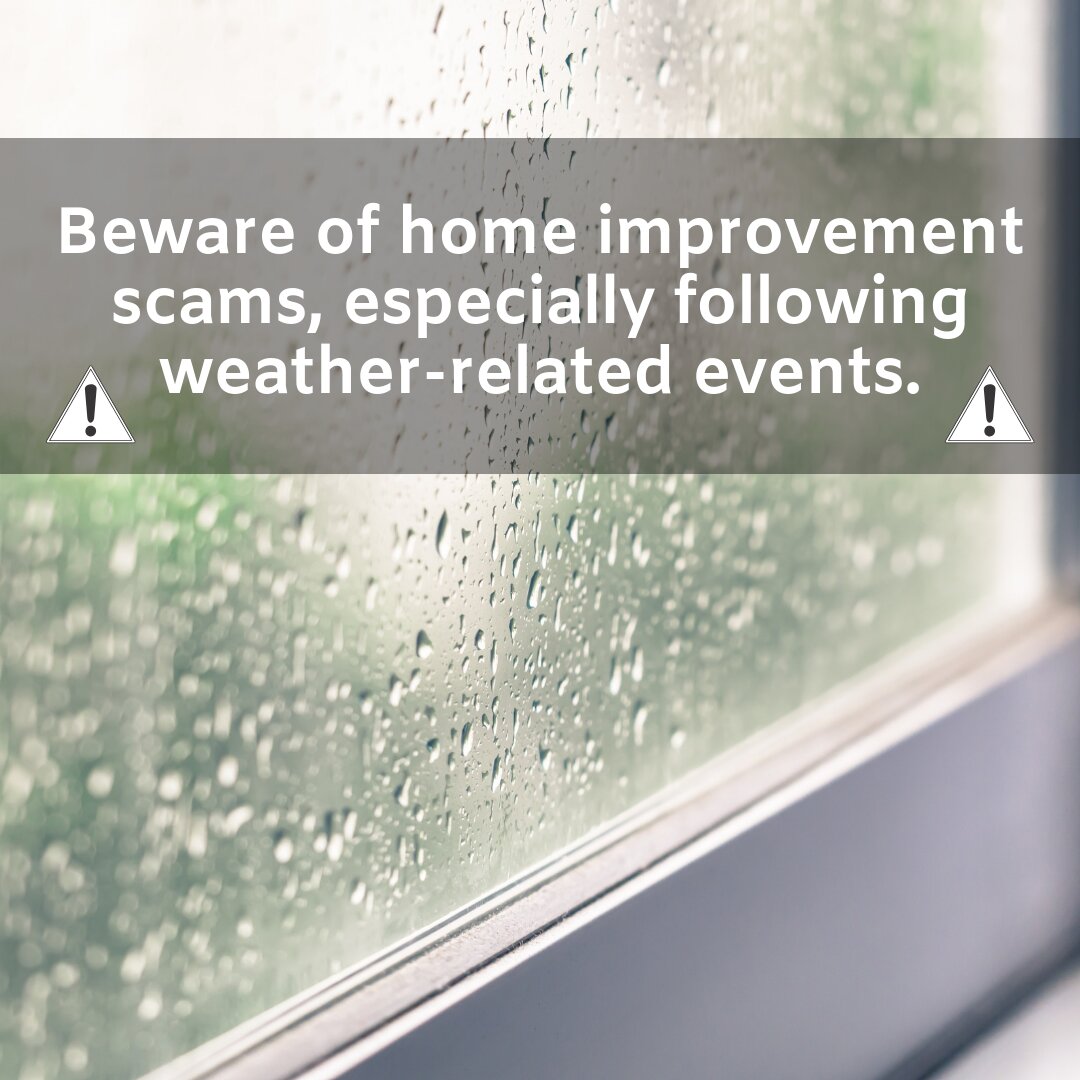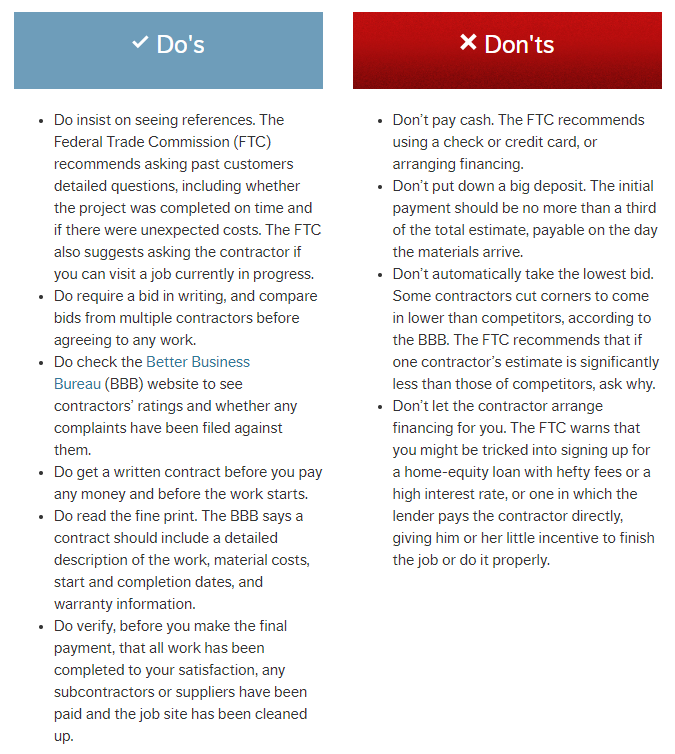News
Beware of weather-related home improvement scams
June 21, 2019
 While most of us lament the weather we’ve experienced this spring, there’s one unscrupulous group that’s more than happy to find the silver lining in all the recent rain and wind: scammers.
Scammers prey on homeowners all year long, but they can be especially aggressive following severe weather such as rain and wind storms. Elderly homeowners are prime targets. Why?
While most of us lament the weather we’ve experienced this spring, there’s one unscrupulous group that’s more than happy to find the silver lining in all the recent rain and wind: scammers.
Scammers prey on homeowners all year long, but they can be especially aggressive following severe weather such as rain and wind storms. Elderly homeowners are prime targets. Why?
- Older adults are most likely to have a “nest egg,” own a home with equity and have excellent credit.
- Older generations of Americans were generally raised to be polite and trusting, traits than can be exploited.
- Older adults are less likely to report a scam because they may be unsure they’ve been defrauded, are ashamed, don’t know how to report it or are concerned loved ones will assume they can’t manage their finances.
- Older victims are perceived to be unreliable witnesses, in part because of age-related memory loss.
How Do You Spot a Scam Artist?
They sometimes:- Work door-to-door, suggesting they are working on other homes in your neighborhood
- Don’t provide contact information or refuse to show identification
- Pressure you for an immediate decision
- Only accept cash and ask that you pay the full amount up front
- Offer to finance the costs or suggest that you borrow money from a lender they know
- Pose as a building inspector and order immediate repairs that they offer to do on the side
- Are not licensed or insured

Additional resources to protect yourself or loved ones:
- AARP Fraud Resource Center: Home Improvement Scams
- BBB: Home Improvement Scams
- Home Advisor: Preventing Home Improvement Fraud
- Experian: Here’s How to Avoid Home Improvement Scams
- Council on Aging: Your Safety First
